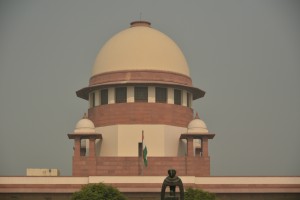Supreme Court: Reminding the courts of their judicial duties, the bench of Dipak Misra and Amitava Roy, JJ said that a trial Judge should remember that he has immense responsibility as he has a lawful duty to record the evidence in the prescribed manner keeping in mind the command postulated in Section 309 of the CrPC and pronounce the judgment as provided under the Code. Non-availability of judgment can never be a judgment because there is no declaration by way of pronouncement in the open court that the accused has been convicted or acquitted.
In the present case, a trial judge had delivered the judgment of acquittal of the persons accused under Sections 304B, 498A/34, 328 IPC read with Section 3/4 of Dowry Prohibition Act, 1961 but the same was not available on record as the judgment had not actually been dictated, dated or signed. The High Court of Chhattisgarh had then ordered the transfer of the matter to another Sessions Judge for rehearing. Aggrieved by the said order of the High Court, the accused persons had argued that the nature of order passed by the learned trial judge would amount to a judgment and in the absence of any appeal preferred by the State there could not have been a direction for rehearing of the sessions case as such action runs contrary to the provisions of CrPC. Rejecting the said contention, the Court said that when a situation like the present one crops up, it causes agony and hurts the justice dispensation system and no one has any right to do so. The High Court by rectifying the grave error has acted in furtherance of the cause of justice.
It was further explained that though CrPC does not define the term “judgment”, yet it has clearly laid down how the judgment is to be pronounced. The provisions clearly spell out that it is imperative on the part of the learned trial judge to pronounce the judgment in open court by delivering the whole of the judgment or by reading out the whole of the judgment or by reading out the operative part of the judgment and explaining the substance of the judgment in a language which is understood by the accused or his pleader. Further, the trial judge may not read the whole of the judgment and may read operative part of the judgment but it does not in any way suggest that the result of the case will be announced and the judgment would not be available on record. [Ajay Singh v. State of Chhattisgarh, 2017 SCC OnLine SC 24, decided on 06.01.2017]

